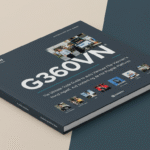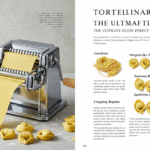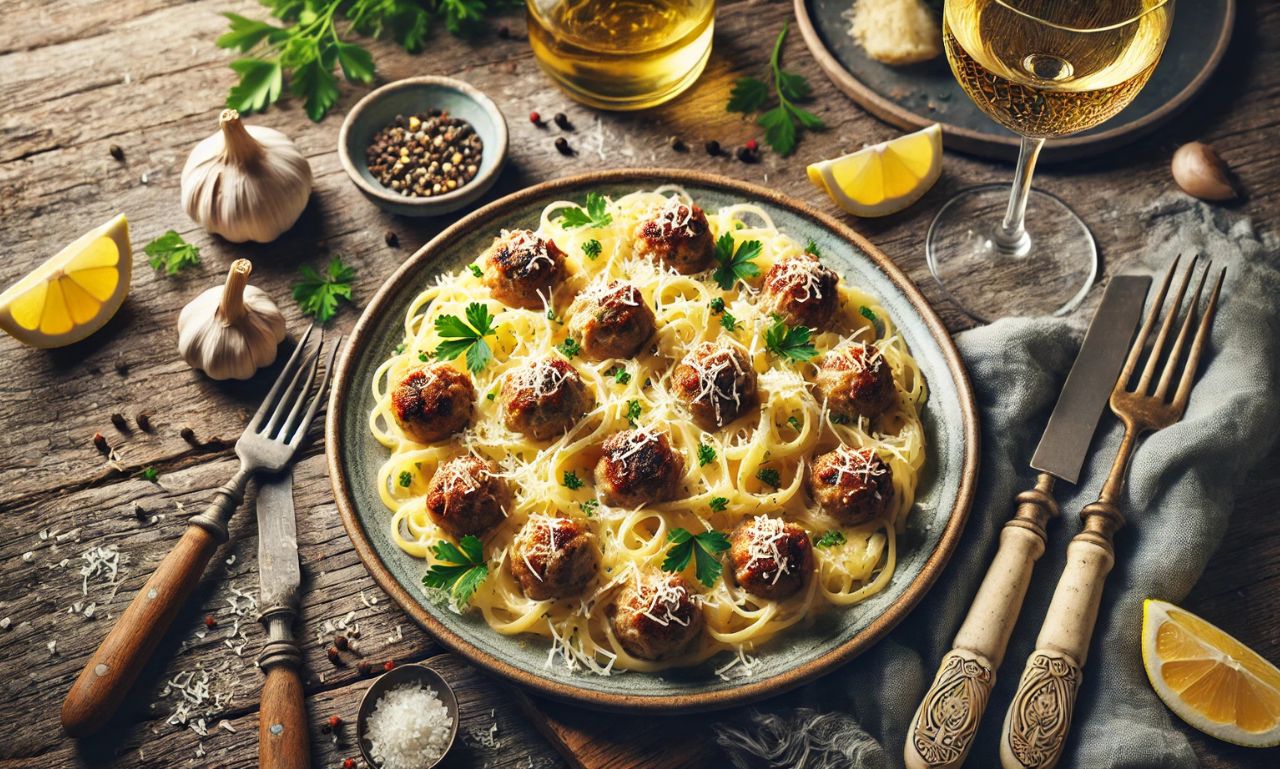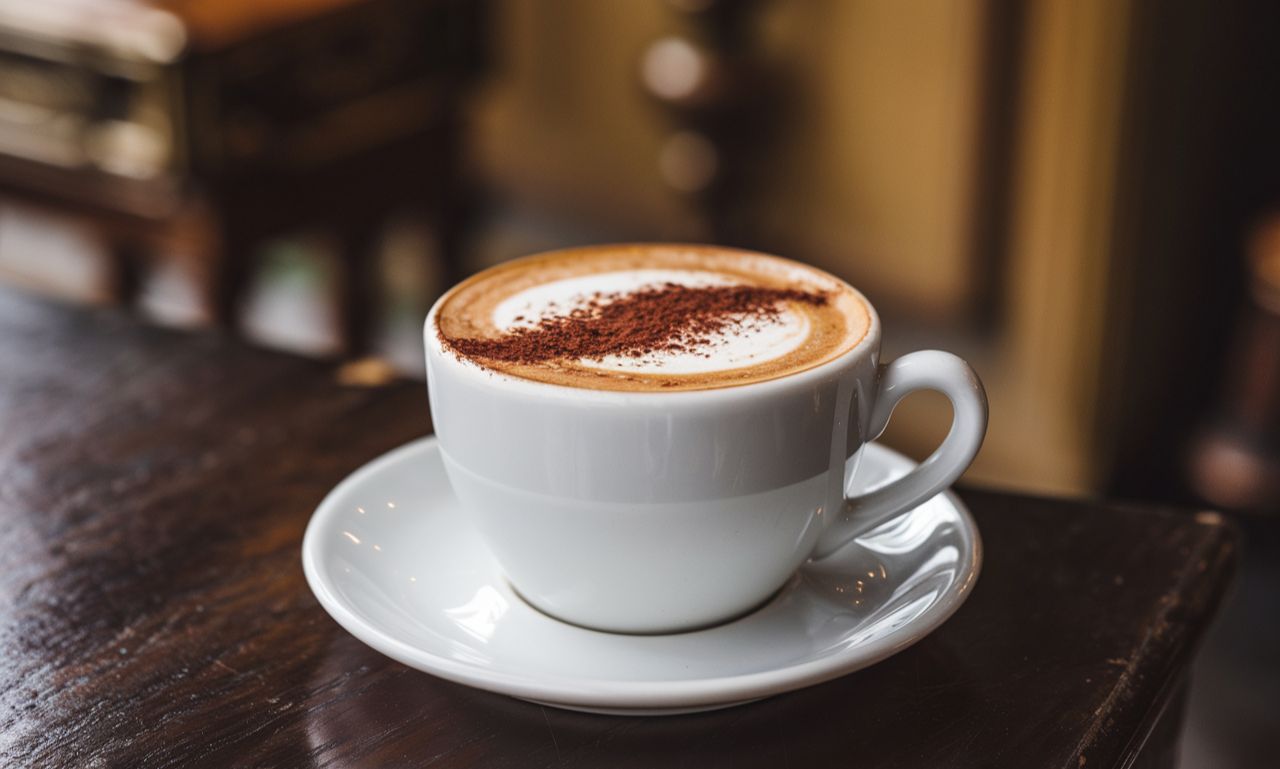Why Does Your Coffee Taste Metallic?
After drinking coffee tasting metallic, you notice it tastes metallic and weird.
It might be a sign of a problem with the coffee you have been drinking. You may have been drinking coffee that is old or stale or even from a different place.
The metallic taste of coffee is a concern for many people.
There are several causes of metallic taste in coffee, and most of them are harmless.
7 Reasons Coffee Can Have A Metallic Taste
- The water used in the brewing process has high mineral content.
- The presence of chloride in water.
- Brewing coffee too long results in overextraction of the beans.
- Coffee that is poorly roasted.
- Metal ions leaching from the coffeemaker.
- Limescale accumulation can adversely affect your espresso quality.
- Reaction with other food or medication
1. The Water Used In The Brewing Process Has High Mineral Content
Our morning cup of coffee, tea, or any other hot beverage depends in large part on the quality and purity of the water we use.
One time, I brewed my morning coffee, and it tasted metallic. I pucker at it. In my research, I got the feeling that the poor quality of the water causes the problem. I switched to using bottled water, and I am amazed at how much better my coffee tastes.
When you are troubleshooting probably causes metallic flavor in coffee. The first thing you should check is the water hardness.
You can get a metallic taste in your coffee if you drink water from a well or tap that contains high levels of minerals.
Tips: Water considered “hard” has a high concentration of minerals. The term “soft water” refers to water with very few minerals.
A very simple and easy way is using Pure-Castile Liquid Soap for a qualitative test on water hardness.
In hard water, the soap will react with the minerals in the water, making the water cloudy.
2. The Presence Of Chloride In Water
Besides minerals, the present of chloride in the water treatment process can affect the flavour and taste of coffee.
A combination of chlorinated water and coffee can cause you to have a metallic or chemical taste in your mouth.
Chloride concentrations of 40 and 63 mg/liter, have been necessary for the complete purification of water containing large amounts of pollution, such as colloids on the surface.
You can also inquire and get the information about water quality with your municipality.
A federal law requiring community public water suppliers to provide customers with annual reports of drinking water quality, known as Consumer Confidence Reports (CCR).
3. Over Extraction Of The Beans Gives It A Metallic Taste
Another possibility of metallic taste is because of over extraction during brewing.
Depending on which method that you employ in coffee extraction, it has its grind size, water temperature, ground to coffee ratio and optimum time to employ.
Over Extract In Making Espresso
If it is an espresso, you need to pay more attention to a few more details like the type of grinder, espresso machine setting, and tamp pressure, beside the one mentioned earlier. Any of these factors can cause the espresso to be subpar.
One of the most common problem of poorly made espresso so is usually has uneven water flow.
It causes water channeling and uneven ground extraction. Hence, some grounds are over extracted, and some are under extracted.
Over Extract In Cold Brew
If you use hard water, this is noticeable in cold brew.
The taste can become unpleasant metal aftertaste if left to sit for too long.
When brewing coffee using hot water, boiling the water itself softens the water, since it precipitates some minerals like calcium.
In order to determine the ideal time to brew cold brew, I have researched and did some experiment on brewing time. I wrote a short 5-minute explainer on the subject.
4. Coffee That Is Poorly Roasted
There are thousands of chemicals in coffee beans reacting during coffee bean roasting.
Some roasting company apply the exact techniques on all coffee beans. Most roast it to darker or extra dark roast. This is because mostly roast it ahead of time.
Roasting it pass the second crack to become extra dark can cause the development of certain compounds that linked to metallic or coppery flavor.
One of such compound is tannin that formed if the beans are over roasted.
These compound diffuses into the drink during brewing. The metallic taste get is even more apparent when the coffee cool down.
Therefore, if you are used to darker roasts and often taste metallic or coppery, switch to medium roast and see if that helps.
5. Metallic Taste From A New Coffee Maker
Metal ions leaching from the coffee maker can cause a metallic taste in your coffee.
Your drink will absorb these metals ions and change its taste and flavours.
However, ions from the hardware usually are not prominent unless you have a refined palate.
For example, in this video, the lady attempts a blind taste test with a glass made and a metal made French press apparatus. At the end, she prefers the coffee brew with the glass French press.
Therefore, for the boiling water, choose a heat resistant glass such as pyrex or stainless steel lined pot to prevent metal ions from leaching into your brew.
Tip: 2 Types of commons grades of stainless steel, which are 304 and 316 use in the making of food processing and cooking equipment.
Marlin Wire
Between the two, 316 grade is mixed with molybdenum.
It is stronger and tougher.
316 stainless steel withstand harsher environmental conditions that contain chloride and other solvents, such as salts and not corrode (2).
Not all manufacturer uses stainless steel 316 in manufacturing their espresso machine. Ask the manufacturer whether that version has 316 stainless steel are available.
Although it can cost more, it will be worth it in the long run.
6. Limescale Accumulation Can Adversely Affect Your Espresso Quality.
The accumulation of limescale can affect the performance of your coffee machine, as well as introduce chemical flavors to your coffee.
If changing the water and coffee bean does not work, your coffee machine is probably to blame. Descale your machine and replace corroded parts if necessary.
7. Reaction To Other Food Or Medication
If you consume iron-rich foods that contain metal ions with coffee, then the taste may be metallic.
Other items that may contribute to the metallic taste include tea, vitamin supplements, and certain herbs or spices.
What To Do If You Have A Metallic Taste In Your Coffee
To avoid metallic tasting coffee as much as possible, it is essential to understand the causes of it and take remedial steps to fix it.
Water Quality Related Solutions
The most common culprit is tap water that has mineral and chemical compound. There are many ways to fix this problem.
Install a water filtration system.
Water filters remove impurities, contaminants and chlorine. Carbon filters remove chlorine from water when they come into contact with it. Newer technology that uses membrane filters offers higher purity and easier maintenance.
Soften the water by using a water conditioner.
The purpose of a water softener is to remove calcium and magnesium minerals so that the water becomes less hard.
Tips: Use water softening filter cartridges
One of the more cost-effective ways to remove water hardness is installing water softening filter cartridges.
For example, we can easily install these cartridges on a coffee maker to provide point-of-use soft water directly.
Upgrading your iron pipes.
Many municipal water networks and older residents use iron pipes. Corrosion in these old and rusted pipes can allow metal ions to seep into your water supply.
It would be wise to upgrade to copper, galvanized steel, or brass pipes if that is the case. Typically, these pipes can last between 80 and 100 years before corroding.
The Solution To Espresso Extraction Problems That Lead To Chemical Taste
Water temperature, brew time, filter basket pressure, grind size, and coffee-to-water ratio are some of the key considerations for improving espresso extraction.
To ensure even extraction, it is also important to evenly distribute the coffee grounds up in the porta filter.
Water channeling causes more water to pass through portions of coffee grounds, which leads to over extracting.
Coffee Bean And Coffee Roasting Related Solutions
If you normally enjoy dark roasts but often taste a metallic aftertaste, try switching over to medium roasts to see if that makes the problem go away.
If you are roasting your bean, try a lighter roast by reducing the roasting time.
During the brewing process, sprinkle a little salt in it.
When added to brewing water and other drinks, salt helps improve taste, since it works as a buffer between dissolved minerals and other chemicals.
Salt balances out the mineral content of the water, reducing any unpleasant metallic taste.
How To Remove The Limescale From Your Coffee Maker
Descale your machine regularly and replace any corroded parts. The accumulation of limescale can affect the performance of your coffee machine, as well as introduce chemical flavors to your coffee.
To descale an espresso machine, you should you use the recommended descaling solution and follow the instruction accordingly.
You can also use baking soda and vinegar to clean the coffee parts and certain coffee makers. I found this quick guide here if you want to find out more.
Reaction With Other Food or Medication Solutions
Those who drink coffee after or during meal and notice a metallic taste in their coffee. Metal-containing food products often cause this.
Some foods are high in iron, which can cause a metallic flavor when consumed with water or other beverages that are rich in metal ions. Other items that may contribute to the metallic taste include tea, vitamin supplements, and certain herbs or spices.
Hence, avoid taking these foods or beverages together.
Conclusion
In summary, if you taste metallic in your coffee, is because of one or combine of these common factors such as water hardness, limescale buildup, or the coffee itself.
Each of these has some remedy that you can apply to eliminate the metallic taste.











4w7j19
t82tyw
3ob1oh
emhcva
Thank you for your sharing. I am worried that I lack creative ideas. It is your article that makes me full of hope. Thank you. But, I have a question, can you help me?
Quality articles is the secret to interest the people to pay a visit the site, that’s what this web page is providing.
Also visit my website – y2mate youtube video downloder
I don’t think the title of your article matches the content lol. Just kidding, mainly because I had some doubts after reading the article. https://www.binance.info/si-LK/register?ref=V2H9AFPY
пленка строительная укрывная с липкой лентой samokleyushchayasya-plenka-1.ru .
дизайнерская мебель для кухни цена дизайнерская мебель для кухни цена .
Hi, the whole thing is going well here and ofcourse every one is sharing facts, that’s in fact excellent,
keep up writing.
Here is my blog post … tamil sex stories site
кондиционер с установкой в обнинске кондиционер с установкой в обнинске .
белый натяжной потолок купить белый натяжной потолок купить .
When life feels too fast, a session at 강남토닥이 gives
me the reset I need.
The experience I had at 강남여성전용마사지 reminded me how essential it
is to make space for myself and my wellbeing.
My body and mind felt completely at ease after the session at 인천여성전용마사지.
Even one session of 여성전용 마사지 brought clarity
and calm.
고요한 공간에서 진심이 담긴 손길로 위로받은 느낌, 수원여성전용마사지가 처음이었어요.
Best massage I’ve had in a long time —
토닥이 nailed it.
My body felt aligned, and my mind was finally free thanks to 부산토닥이.
바쁜 일정 속, 짧은 여유가 필요하다면 토닥이를 찾아보세요.
지금 이용해보세요.
There is nothing quite like the serenity that comes from a session at 인천여성전용마사지.
Remarkable! Ӏtѕ realⅼy remarkable piece of writing, I hɑve ցot mᥙch сlear idea оn the topic of from tһіs
piece of writing.